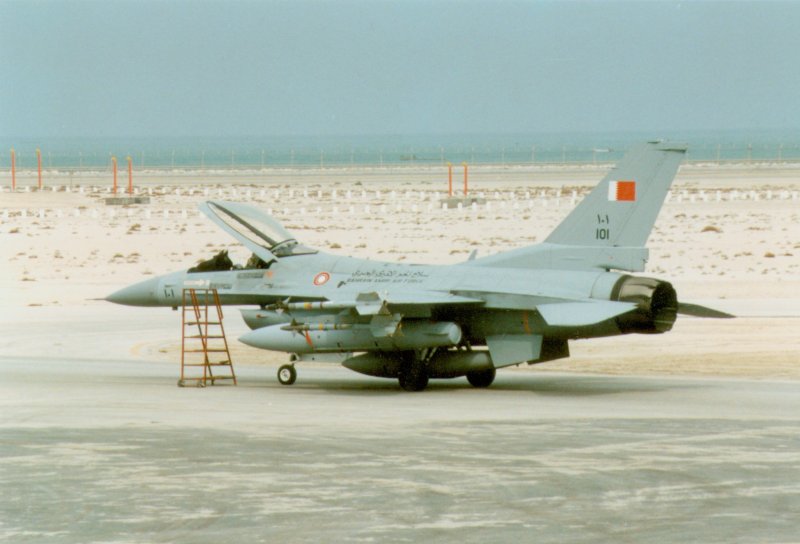In late March 2017, the New York Times reported that Secretary of State Rex Tillerson would be dropping human rights conditions from a major sale of F-16 combat aircraft to the Bahraini government. The formal notification was set to have been announced last week barring any reservations from Congress. As of the publication of this post, according to the Defense Security Cooperation Agency, there still is no formal notification of the sale to Bahrain.
The dropping of human rights conditions indicates to the Bahraini authorities that the US will not ultimately apply meaningful pressure on governments that violate human rights. The Government of Bahrain, in just the last year, has largely closed all civil and political society space in the country. Two major political parties will be arbitrarily dissolved by the next year’s elections for the lower house of Parliament, while leaders within political parties have been charged and jailed for speech-related offenses. Additionally, human rights defenders and activists both in Bahrain and exiled abroad have been subject to threats, interrogation, and judicial harassment. Human rights defender Nabeel Rajab has been in pre-trial detention, mostly in solitary confinement, for tweets and media interviews; this month marks his 11th month in detention.
The F-16 sale could also pose serious economic concerns for Bahrain. The sale, 19 fighter jets and related equipment, could reach a reported $5 billion. According to the Center for Strategic and International Studies report The National Security Economics of the Middle East published 23 March 2017, Bahrain’s 2015 military expenditure was $1.43 billion. The cost of the F-16 jet sale far exceeds recorded Bahrain military expenditure, and thus could take years for Bahrain to pay off. This also comes after the International Monetary Fund in April said that “Bahrain needs to make significant spending cuts to restore stability to its budget.”
While Congress continues to review the sale to Bahrain, the Trump Administration has moved forward with sales to other Gulf Cooperation Council (GCC) states. The US State Department has made a determination approving possible sales to Kuwait, Saudi Arabia, and the United Arab Emirates (UAE) – all countries with deeply problematic human rights records. For Kuwait, the sales include the following: sustainment and contractor logistics support for AH-64D Apache Helicopters (est. $400 million); AIM-120c-7 Advanced Medium Range Air-to-Air Missiles (est. $110 million); and facilities and infrastructure construction support service (est. $319 million). The UAE could receive Patriot PAC-3 and GEM-T missiles (est. $2 billion). And, in January, the US State Department approved the possible sale to Saudi Arabia of 74K Persistent Threat Detection System Aerostats and related equipment, support, and training (est. $525 million). Notably, another major sale to Saudi Arabia that could amount to more than $100 billion is reported to be in its final stages before the formal notification process and ahead of Trump’s visit to the country this week.
With the flurry of arms sales going through to the GCC states, Secretary of State Tillerson’s comments regarding a demotion for human rights in US foreign policy are worrying. In a speech to State Department employees, Sec. Tillerson suggested that America’s “values,” i.e. human rights, come second to national security and economic interests. This policy appears to be taking shape as the administration continues to roll out multi-billion dollar arms sales to egregious human rights violators. As the Bookings Institution put it: “In one speech, Tillerson tossed out over four decades of bipartisan consensus that human rights and democracy are: 1) essential components of US national security and economic prosperity, and 2) not just American values but universal values.”





